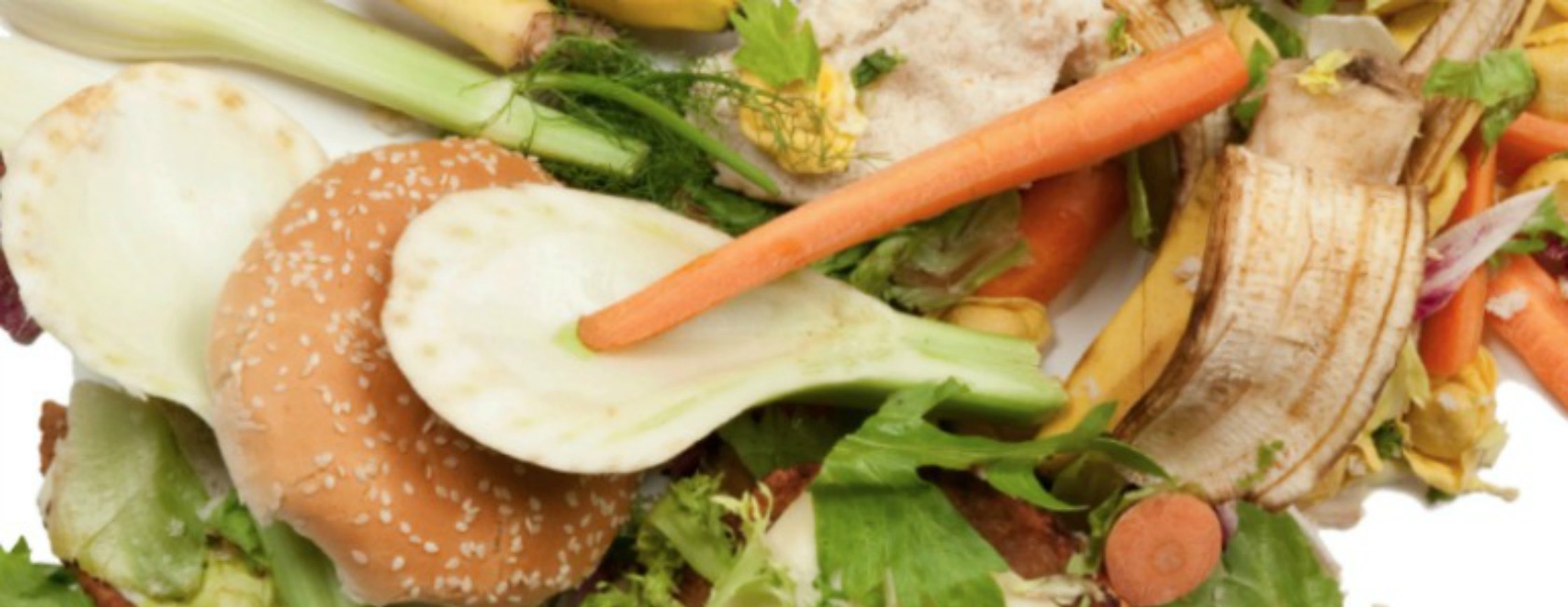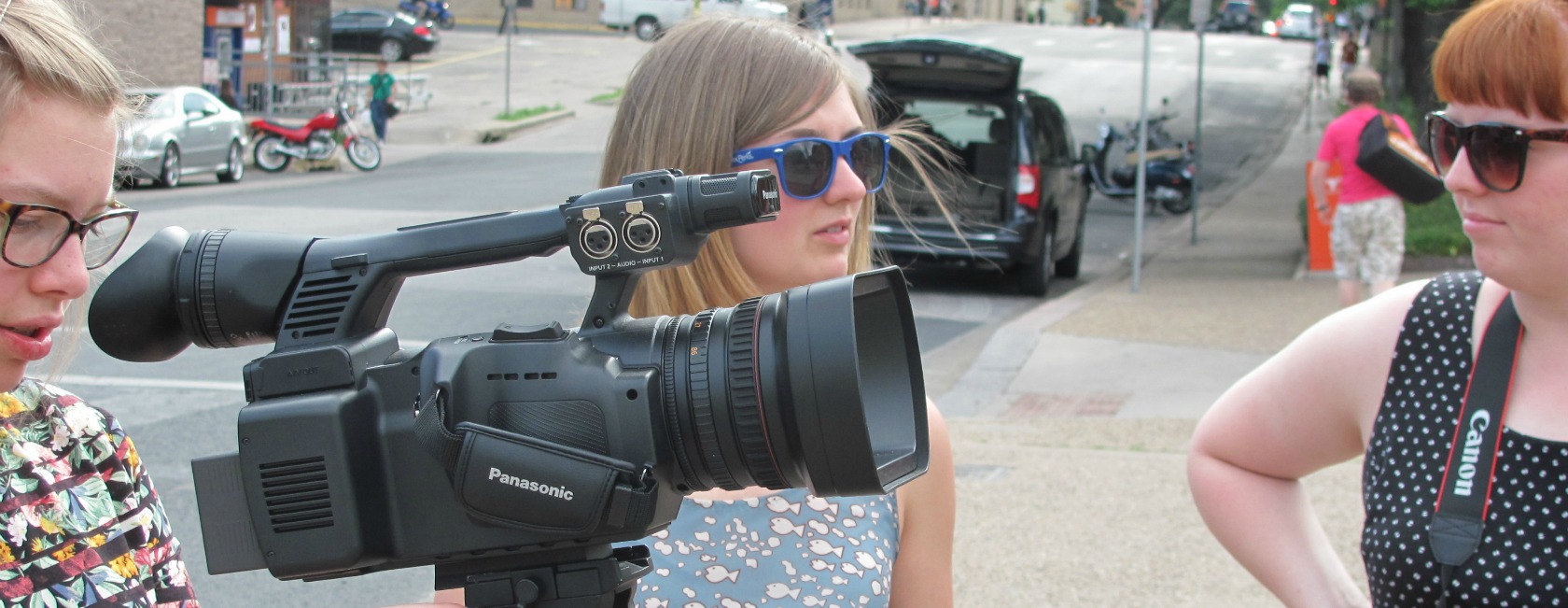PLU’s MediaLab Premieres Latest Award-Winning Documentary on Campus April 23

Image: PLU’s MediaLab premieres its latest documentary film on campus on April 23.
By Anne-Marie Falloria '15
PLU MediaLab
TACOMA, Wash. (April 17, 2005)—Pacific Lutheran University’s MediaLab will host the on-campus premiere of its most recent documentary film, Waste Not: Breaking Down the Food Equation, on Thursday, April 23, at 6 p.m. in the Studio Theater.
Admission is free, and the event is open to the public.
In producing the documentary, three MediaLab students, all Communication majors, spent more than a year exploring the topic of food waste and its many implications, and their hard work has been rewarded: Waste Not has received several national and international recognitions, including a 2015 first-place nomination from the National Broadcasting Society, a national second-place finish in the Broadcast Education Association’s Festival of Arts Competition and a Rising Star Award from the 2015 Canada International Film Festival. And, just days before its premiere, Waste Not also was nominated for a Regional Emmy in the Long Form Non-Fiction Category for Colleges.
Co-producer Amanda Brasgalla ’15, along with senior co-producer Taylor Lunka ’15 and chief videographer Olivia Ash ’15, traveled across the United States, Canada and the United Kingdom to conduct interviews and field research. They spoke with citizens, farmers, activists and government officials to present an extensive view of food waste.
“Food waste is really an issue that is overlooked in society,” Brasgalla said.
According to the United Nations, 30 to 40 percent of the U.S. food supply is wasted, which equates to more than 20 pounds of wasted food per person, per month.
“Food is thrown away at all levels of the chain, from the farm all the way to the consumer. What’s really tragic is that some of the food is completely edible,” Brasgalla said. “Many times food is discarded because it doesn’t look right, or is too small or large. This idea of cosmetic perfection leads to tons of food being thrown out and wasted.”
In 2013, the national nonprofit food bank network Feeding America reported that 49.1 million Americans live in food-insecure households.
“That means a significant amount of our population goes hungry, even though we are discarding tons and tons of food,” Brasgalla said. “There needs to be a way we can distribute this food that would otherwise go to waste, and help other people.”
Gleaning, a centuries-old method of collecting excess produce after harvest, is one example of how food can be distributed and donated to those in need. Local organizations such as Harvest Pierce County conduct gleaning operations aimed at reducing food waste and building community.
Since 2009, Harvest Pierce County’s Gleaning Project has harvested more than 300,000 pounds of food to help the community.
In addition to gleaning, food-recovery organizations across the country, such as Lovin’ Spoonfuls, a nonprofit food rescue operation in Boston, also work to reduce food waste.

MediaLab members, from left, Olivia Ash, Amanda Brasgalla and Taylor Lunka work on location for “Waste Not” in Austin, Texas. (Photo courtesy of MediaLab)
During their research, Brasgalla and Lunka accompanied a Lovin’ Spoonfuls driver on one of her daily food pickups.
“We visited large-scale grocery stores around Boston and were blown away at how much food they would donate,” Lunka said.
In less than three hours, food donations to Lovin’ Spoonfuls filled a refrigerator box truck 5 feet wide and 7 feet high.
“Lovin’ Spoonfuls has several trucks that pick up daily—and that was only one truck,” Brasgalla said. “It was unbelievable to see. But seeing an organization like Lovin’ Spoonfuls making a difference was amazing.”
MediaLab was established in 2006 as an experimental program that initially focused on print journalism. But the scope of the organization’s work has expanded over the years to include filmmaking, photography, public relations, advertising and other media content and services. MediaLab has received numerous awards since its inception, including an Emmy Award, five National Broadcasting Society Awards and many other honors. MediaLab is one of several programs within the Center for Media Studies at PLU, which is part of the University’s School of Arts and Communication.
For more information about the campus premiere of Waste Not, contact the School of Arts and Communication at 253-535-7140, write to ml@plu.edu or visit wastenotdoc.weebly.com.


